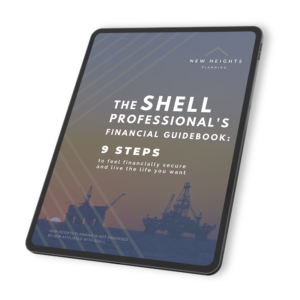Mortgage vs. Investing
Mortgage vs. Investing
Full Transcript:
One of the most debated items in personal finance is choosing to pay off your mortgage early versus investing more. Today, I’ll walk through a few factors for you to consider.
This is one of those topics where everybody has a strong opinion. Like most things in personal finance, more important than someone’s opinion is your individual situation. For today’s discussion, we’ll assume that you’re already maxing out your tax-advantaged accounts like your 401(k).
Mortgage rates have been going up over the past six months. A rate for a new mortgage today averages between 4.5% and 6%. When we look at investing, we don’t know exactly what rate of return the stock and bond markets will have. When we look back over the last 70 years, we’ll see that stocks have averaged over 10% and we throw some bonds in the mix. We have a weighted average of about 9%. Now, past performance is no guarantee of future results.
There’s also risk involved with the stock market. With a mortgage, you would likely have a fixed-rate mortgage. This means that when you pre-pay it, you know exactly how much interest you are going to save. With the stock market, there’s a lot more uncertainty. We look back over 70 years and we look at rolling ten-year periods. We will see that over the ten years, this average rate of return has varied by plus or minus 7%. That means this diversified portfolio you thought you were going to get 9% on, you may have only gotten 2% annual rate of return over a ten-year period.
Now let’s talk about taxes. One of the reasons why people talk about mortgage being good debt is because of its tax deductibility. When you deduct something off of your taxes, you’re reducing the amount of income that you’re taxed on. And income rates go up to 37%. However, there’s a catch here. The standard deduction is a lot higher now, thanks to the Tax Cuts and Jobs Act. The current standard deduction for somebody’s married filing jointly is $25,900. This means that you have to have more than $25,900 in interest and other deductions before your tax bill goes down by one single dollar. So although a lot of people think that they’re saving money in taxes by their mortgage, in reality, it’s only a small percentage. Now, when it comes to investment, there’s no free lunch here either. Uncle Sam wants their money. Capital gains rates, the rates you pay on an investment once you sell it, can vary by your income and are up to 23.8% for long-term capital gains.
Now, another factor to consider is liquidity. Outside of this discussion, you should have an emergency fund for your short-term cash needs. That being said, when you put money into your mortgage, you can’t get it out easy. You either have to refinance or take out a home equity line of credit. With the stock and bond market, you can sell those investments and generally access the money in your checking account within a few days.
The flip side, of course, of liquidity, is your behaviors. One of the primary drivers for personal finance success is actually behaviors, not math. Now, that being said, with a mortgage, it is really hard to screw this up, especially when we look at relative to investing, where historically we have seen that people screw up investing all the time.
So at the end of the day, doing either one of these is a fantastic move for your personal financial situation. It ultimately comes down to how you feel about debt and risk. How would you feel if you had a paid-off house? The right thing to do is for you to make a decision and stick with it.



